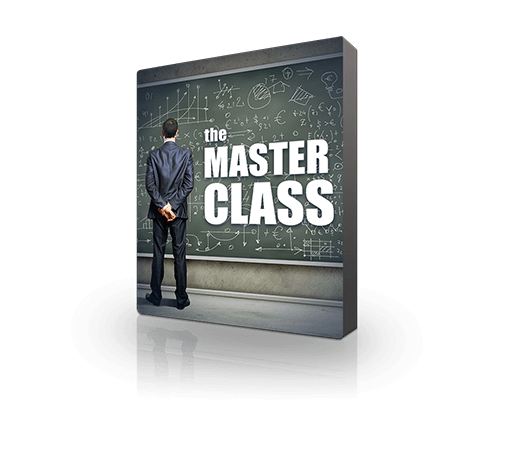 |
|||||||||||||||||||||||
   
Balancing Act: The Newsletter (No. 211, March 2017) Balancing Act® is our registered trademark. You are encouraged to share the contents with others with appropriate attribution. Please use the ® whenever the phrase "Balancing Act" is used in connection with this newsletter or our workshops.. Balancing act is in four sections this month: 1. Techniques for Balance 2. Musings 3. The Human Condition: Disproportion 4. ORTIYKMWOYBNT-O Department Follow me on Twitter! You can find me here: And find me on Facebook: https://www.facebook.com/RockStarOfConsulting Free consulting newsletter: The Million Dollar Consulting® Mindset:

• An abundant mentality has more to do with generosity than it has to do with finances. • It's fascinating watching people who must have caffeinated coffee in the morning and decaffeinated coffee in the evening. Is that like an "upper and downer" addiction? • Some people once proudly proclaimed that they didn't own a television, as if that were culturally superior. Now, it simply means they're missing wonderful entertainment and diverse programming. • Never strive to win an award of recognition (as opposed to trying to win a race or scholarship). If it's due to you it will come and if it doesn't, so what? (Professional speakers are especially addicted to these) • Someone on Facebook, a woman, actually said that she can't be bothered taking the time for manicures, facials, hair, etc. When I see people who are not groomed well I know I don't want to be around them for long. • Serving on a non-profit board can often be an exercise in astonishment that anything, at all, is accomplished. • If we treated students as customers and vested them with that power, perhaps teachers and school systems would be more responsive to such needs instead of their own. • Don't feel guilty doing nothing, or watching the ocean, or daydreaming. Out of such "inactivity" great plans can emerge. • I've found that the profound difference between people and dogs is that dogs don't spend any time at all trying to protect their egos. • Paint a picture of your future. Don't try to create it from where you happen to be today. 
I learned today of a veterinarian who decided it was important to know what it was like for a cat to be invested with earwigs. So he obtained some of the small critters and put them in his ear (thankfully, he didn't want to see what rabies felt like). He reported in a medical journal that for the next three days it sounded as if he had an incredible thunder storm in his ear with constant pounding and loud noise. This subsided after three days when the earwigs departed (they don't like the feel of human skin). What must a cat feel like, he pondered? Now, he was far more empathetic to why they were constantly shaking their heads when infested. That level of empathy is extreme but instructional. There's an old admonition to "walk a mile in the other person's shoes" before you pass judgment or critique. The cynical response is the reason for this is that you'll then be a mile away and have his or her shoes. Intellectual empathy is rather easy, but emotional empathy (the ability to understand and share the feelings of others), not so much. We say we understand how someone else feels, but we really don't (or don't even care). It's like the annoying service representatives on the phone who practice client service 101 and say, "I know how frustrated you must feel not to have your reservation honored and to have to sleep in the rain outside of our hotel and then be mugged." No, you don't, you idiot. I've observed too many doctors, attorneys, police officers, reporters, and others who look at people as categories: critically ill, divorcing, a perp, an exposé. I had a doctor once who just saw me as a platform for procedures, wishing I was truly sick to try a bunch of experiments. Fortunately, I saw through that, fired him, and found a specialist who simply pointed out that I had eaten too many beets which turns urine red and the other guy must have missed that day in medical school. This is why I detest generational sobriquets: millennial, greatest, X and Y, boomers. They show no empathy for people, but merely a tendency to label them and put them in a neat drawer. I don't know and never will know what it's like to give birth, although from what I've seen and been told you'd have to give me an epidermal that would take down Seabiscuit. What I can provide is an ear to listen and comforting words and sympathy as I do in my community weekly with those who are ill, divorcing, losing a loved one, having financial problems, or losing a pet. I'm not about to infest myself with bugs, but I am ready to invest myself with the responsibility to try to help, to try to understand and share. How about you? 
During the occasional gasoline shortages that have occurred, it's been instructive to listen to people who explained how they found gas that was a dime a gallon cheaper—ten miles away. They didn't see the irony in their stratagem. I've seen groups of people meticulously divide a dinner bill six ways according to who consumed what, carefully deduct tax before adding a 15 percent tip, and then not realize they spent ten minutes appearing unsophisticated when the difference in simply equally sharing a check and adding 20 percent to the totals is extremely small. But some feel "cheated" if they had a salad and no wine while someone else had chicken and a drink! Have you seen people elbowing to get into a play for which they had assigned seats? Or people in an airplane jumping up as soon as the seat belt sign was turned off at arrival, snatching luggage from overheads as if they have an urgent connection (they don't)? Why is it that you can easily buy a lottery ticket when the grand prize is $50 million, but at $300 million there are lines out the door and people from Connecticut drive to Rhode Island to avoid even longer lines? (I am not making that up). Is it that $50 million won't change their lives, but $350 million will? For that matter, wouldn't a lousy million make a substantial improvement? There is zero reason to shop on "Black Friday" or run into a store as soon as it opens. You may save a few bucks (you usually don't because you buy more than you intended or needed) but are the hour, indignity, and discomfort worth it? Does pumping gas into your Mercedes when you have business clothes on overcome the tiny additional amount you'd pay for the attendant to pump it? I see this all the time in the affluent town in which I'm writing this. Of course, in New Jersey, where I'm from originally, you can't pump your own gas because the legislature is afraid anyone doing so will self-immolate if not a highly trained and extensively experienced gas station attendant. Do people search for the cheapest surgeon when confronted with a major medical problem, or the least expensive attorney when forced to defend themselves, or the rock bottom consultant when they need help for their business? If so, they are way out of proportion. And this isn't about how much money one has in most cases, it's about having the right mentality. It means picking up the check, because it's a relatively minor matter in the grand scheme of things. 
I left the United Airlines club in Boston to find that my flight had already started boarding. Everyone was going to the right at the plane's entry door, to coach, and I turned left to first class, with just my empty seat unfilled. I didn't want to disturb the person in the aisle twice, so I looked for a flight attendant to take my jacket. A woman was behind me in a United overcoat. But she might have been the gate agent following me on board. "Are you the gate agent?" "No." "Then you're a flight attendant! Would you mind taking my coat?" "Actually, I'm the pilot." 
I’ve run two free pilots to test the technology, and now we’re off and running in 2017. Watch a one-hour workshop, rich in content, and ask questions while in progress, no matter where you are in the world. They are also recorded, in case you can’t make the live event or want to retain the actual broadcast. I’m offering six, as detailed below, at $75 each, or $400 for all six. You can register here: https://www.alanweiss.com/growth-experiences/livestream-workshops/ Schedule: • Feb. 23, 2017: The Strategist - How to set strategies for organizations or individuals (Completed but available on recording) • Apr. 18, 2017: The Innovator - A methodology for systematic innovation • Jun. 13, 2017: Creating 6-figure Projects - Consistently and effectively • Sep. 19, 2017: The Advisor - Advisory work as your primary intervention • Oct. 17, 2017: Abundance - The mindset of success, happiness, and growth • Nov. 16, 2017: The Expert - How to command a room, discussion, and direction
Having problems viewing this email, click here. © Alan Weiss 2017 |
Balancing Act® is our registered trademark. You are encouraged to share the contents with others with appropriate attribution. Please use the ® whenever the phrase "Balancing Act" is used in connection with this newsletter or our workshops.

It may be helpful to look around before you look ahead. Alan Weiss |
||||||||||||||||||||||
 |
|||||||||||||||||||||||







